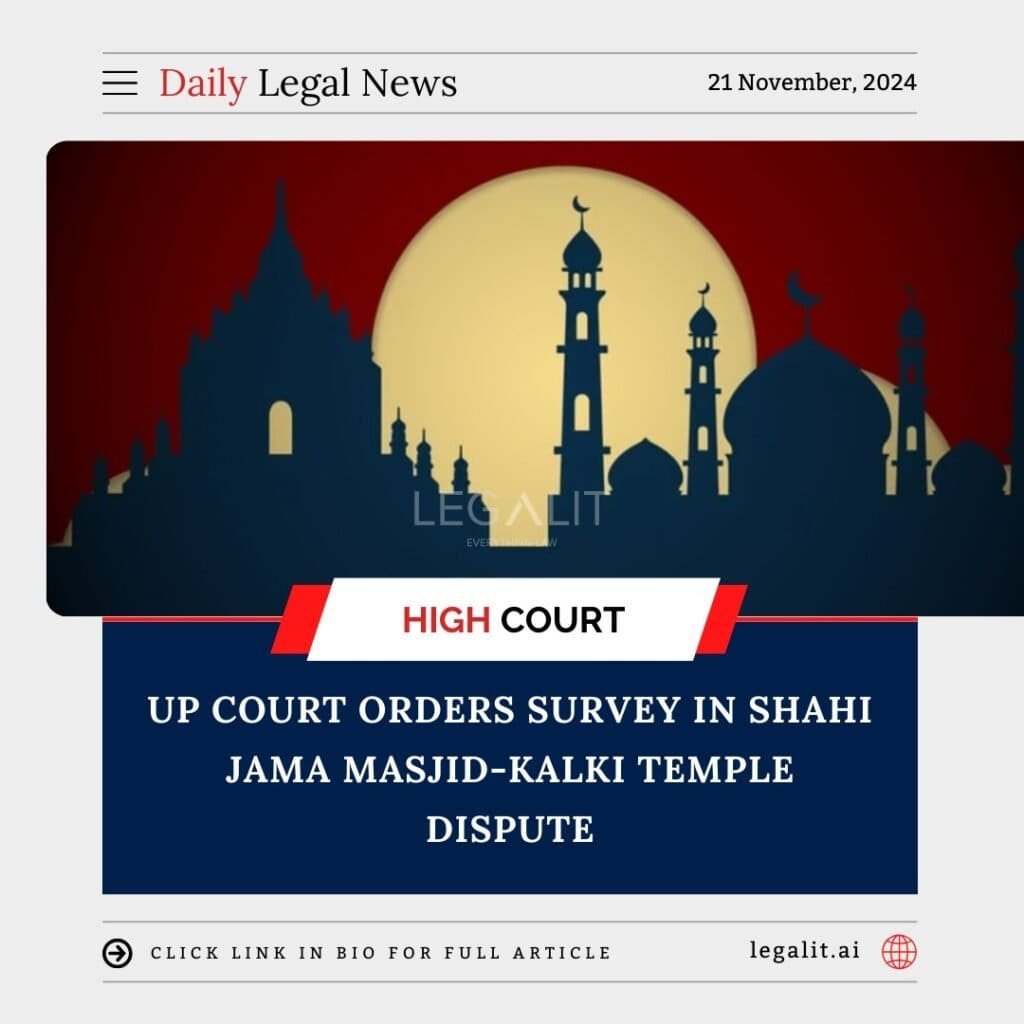
An Uttar Pradesh court has ordered a survey of the disputed site between the Shahi Jama Masjid and Kalki Temple, following ongoing tensions and legal battles over the ownership and historical significance of the land. The court’s decision comes as a step towards resolving the long-standing controversy that has drawn significant public and legal attention.
Background:
The dispute involves the Shahi Jama Masjid, a prominent mosque, and the Kalki Temple, a religious site. Both claim the land as their own, with arguments rooted in history, religious significance, and the preservation of heritage. The conflict intensified in recent years as both communities, alongside local authorities, sought to establish their respective claims to the site. Legal proceedings have been ongoing for years, with both parties demanding control over the area for religious purposes.
Court’s Rationale:
The court ordered the survey to better understand the physical and historical dimensions of the disputed property. The survey will include an examination of archaeological and architectural evidence, which is expected to provide clarity on the original purpose and use of the land. The court’s decision highlights its intention to resolve the dispute through a fact-based approach, relying on ground reality rather than solely on the claims of either party.
Existing Measures:
The dispute has seen multiple legal challenges, with the district administration and religious organizations involved in efforts to mediate and maintain peace. Previous attempts at negotiations have failed, leading the court to take a more direct approach by calling for a thorough survey. The outcome of this survey is expected to play a pivotal role in future legal decisions regarding the ownership and use of the disputed site.
Conclusion:
The UP court’s decision to order a survey in the Shahi Jama Masjid-Kalki Temple dispute marks an important step towards resolving the ongoing conflict. The survey’s findings will likely have a significant impact on future rulings and attempts to settle the dispute between the two religious communities. With tensions running high, this legal intervention underscores the judiciary’s role in addressing complex religious and historical disputes in a fair and balanced manner.